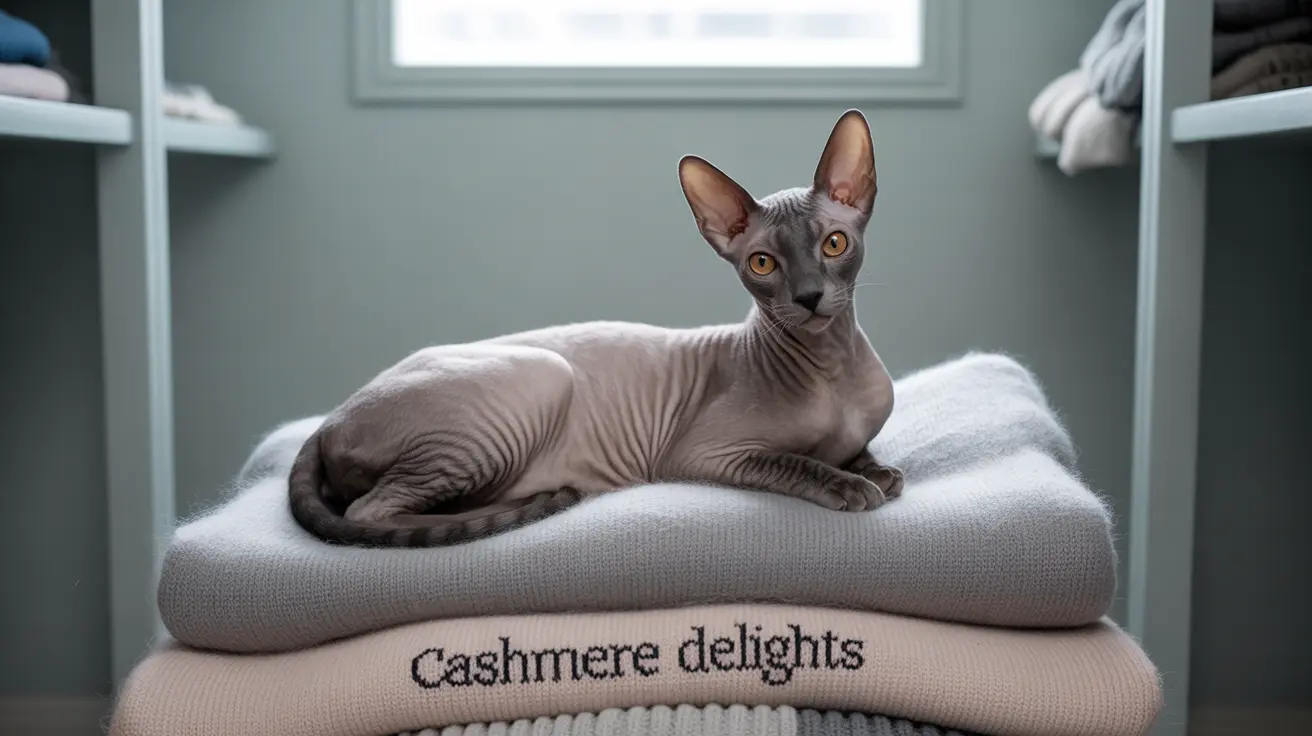The Natural Appeal of Closets to Cats
A Den-Like Safe Haven
Cats are natural den-dwellers, and closets provide the perfect combination of security and comfort. The enclosed space, with its four walls and limited access points, creates a protected environment that allows cats to rest without feeling vulnerable to potential threats.
The darkness and quiet atmosphere of closets also appeal to cats' crepuscular nature, making these spaces ideal for their daytime rest periods. The controlled environment helps them maintain their preferred body temperature while staying hidden from activity in the household.
The Comfort of Familiar Scents
One of the most compelling reasons cats are drawn to closets is the presence of their owner's scent on clothing and shoes. This familiar smell creates a comforting environment that helps reduce anxiety and reinforces their sense of territory. The soft fabrics in closets also provide warmth and cushioning, making it an ideal spot for extended naps.
When Closet Hiding Becomes Concerning
Normal vs. Problematic Hiding Behavior
While it's perfectly normal for cats to enjoy spending time in closets, sudden changes in hiding behavior can indicate underlying issues. Regular closet visits as part of a cat's normal routine are typically nothing to worry about, especially if the cat maintains normal eating, drinking, and social behaviors.
However, if your cat begins spending unusually long periods in the closet or shows other behavioral changes, this could signal stress, illness, or discomfort that requires attention.
Signs That Warrant Veterinary Attention
- Decreased appetite or thirst
- Reduced social interaction
- Changes in litter box habits
- Visible signs of pain or discomfort
- Lethargy or unusual aggression
Creating Cat-Friendly Alternatives
To provide your cat with appropriate hiding spots while keeping your closets cat-free, consider these alternatives:
- Install cat shelves or window perches
- Provide covered cat beds in quiet corners
- Set up cardboard boxes in strategic locations
- Create elevated hiding spots on cat trees
- Offer soft, enclosed pet beds
Managing Environmental Stressors
Sometimes, excessive closet hiding is a response to environmental stress. Address common triggers by:
- Maintaining consistent daily routines
- Using pheromone diffusers in high-stress areas
- Creating multiple resource stations in multi-cat households
- Providing quiet zones away from household traffic
- Minimizing sudden environmental changes
Frequently Asked Questions
Why do cats prefer hiding and sleeping in closets?
Cats are attracted to closets because these spaces offer darkness, warmth, security, and familiar scents. The enclosed nature of closets appeals to their instinctive need for safe, den-like spaces where they can rest undisturbed.
Can a sudden increase in my cat hiding in the closet indicate illness or stress?
Yes, a sudden increase in hiding behavior, especially when accompanied by other changes in eating, drinking, or social habits, can signal illness or stress. If you notice significant changes in your cat's hiding patterns, consult your veterinarian.
How does the owner's scent in closets comfort cats and reduce their anxiety?
Familiar scents on clothing and belongings help cats feel secure and connected to their territory. The presence of their owner's scent creates a comforting environment that can help reduce anxiety and stress.
What are safe ways to provide alternative cozy hiding spots besides closets?
You can create cat-friendly hiding spots using covered cat beds, cardboard boxes, cat caves, elevated perches, and quiet corners with soft bedding. Ensure these alternatives offer the same security and comfort as closets.
When should I worry and take my cat to the vet if it spends a lot of time in the closet?
Seek veterinary care if your cat's increased closet hiding is accompanied by changes in appetite, elimination habits, energy levels, or social behavior. These combined changes could indicate underlying health issues that require professional attention.
Conclusion
While cats' attraction to closets is typically normal and instinctive, understanding the reasons behind this behavior helps you better care for your feline friend. By providing appropriate alternatives and monitoring for concerning changes, you can ensure your cat's hiding behavior remains healthy and adaptive rather than problematic.






